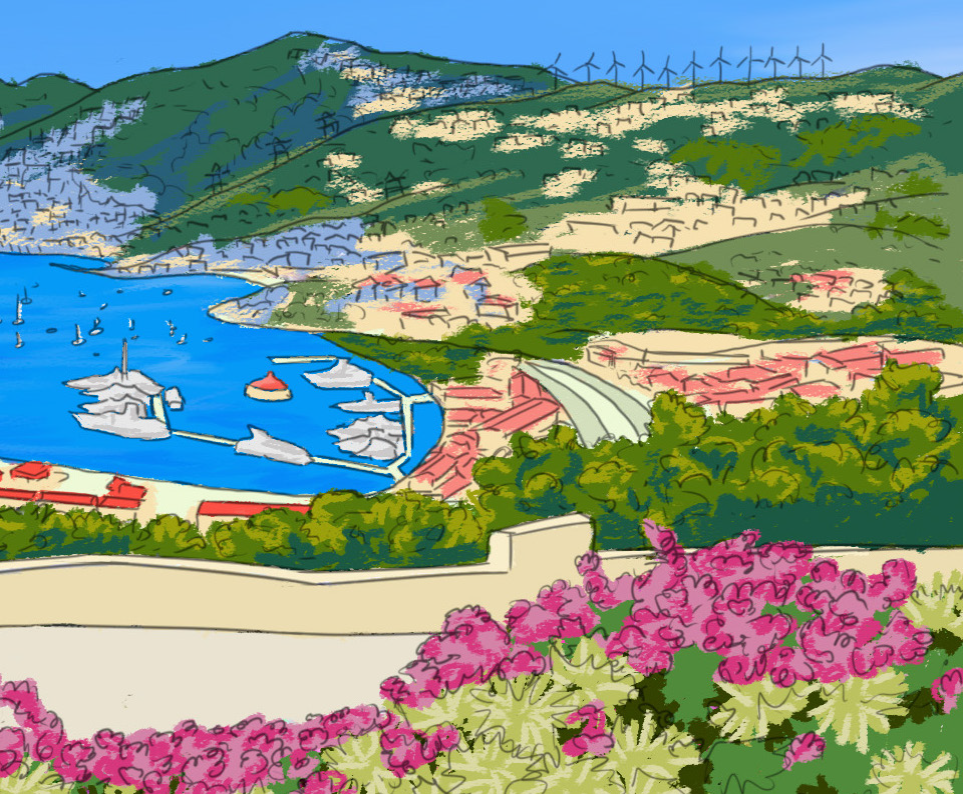Students play with geopolitical relations in the energy transition
The energy transition is not only technically challenging, there are also complex geopolitical interests at play. TU Delft Gamelab, together with the University of Stavanger, Technical University of Munich and the University of Ghent, developed a serious game for students in which all these challenges come together: the Geopolitics game.
In the game they experience, in a playful manner, that there is a lot at stake in the energy transition. At the same time students gain a better understanding of complex decisions to be made in the political arena. Above all, they learn that international cooperation is necessary for the energy transition to succeed.
Learning objectives
In the game, players represent hypothetical countries on an imaginary continent. 'The goal is to reduce total carbon emissions with negotiations to avert the worst consequences of climate change,' says Geertje Bekebrede, who developed the game together with Gracia Bovenberg-Murris of the Gamelab. The main learning objectives are: to understand the effects of cooperating or not between countries with regards to CO2 emissions, to learn about the effects and possibilities on burden-sharing and investment in renewable technologies, and to experience that doing nothing leads to more and bigger challenges in the longer term.
Clashing interests
Students are enthusiastic about the game. Bekebrede: 'They say they have a much better understanding of the difficulty of the energy transition and better understand that geopolitical relations have to be taken into account in the transition process. At the same time, they also need to keep citizens happy with sufficient food or housing, for example'. Participating student: 'You often have to deal with clashing interests. That makes it complicated.' The game also makes it very clear that the energy transition is manageable for rich countries, but poor countries have other priorities. 'Cooperation is the key word in reducing CO2. When players put their own interests first in negotiations, you see that there is less CO2 reduction’, says Bekebrede.
To play the game well, good guidance from a knowledgeable lecturer is needed. Teachers indicate that the game can be fitted nicely into regular lessons. Aad Correljé, one of the lecturers that played the game in his classroom: 'In four hours, students learn a lot about the geopolitical playing field. It is precisely by engaging in it themselves that the lesson material comes to life much more. Moreover, the game goes in several rounds, so they also learn in the game itself.'
It is striking that students take a very different approach in the various test games. Bekebrede: ‘For instance, bachelor students focus more on self-interest, while master students are more inclined to start negotiations. And when agreements are made amongst the different stakeholders, you see that they are interpreted differently, just like in real life.
Play along!
The geopolitics game was developed as part of the Erasmus+ project The Geopolitics of Renewables Simulation to encourage innovations in education. The game is available to all universities, inside and outside of the EU. With different building blocks, the focus of the game can be adjusted. This makes the game suitable for different groups of students who study political science, public administration and similar studies. For more information about the game, please contact: Geertje Bekebrede: g.bekebrede@tudelft.nl.
